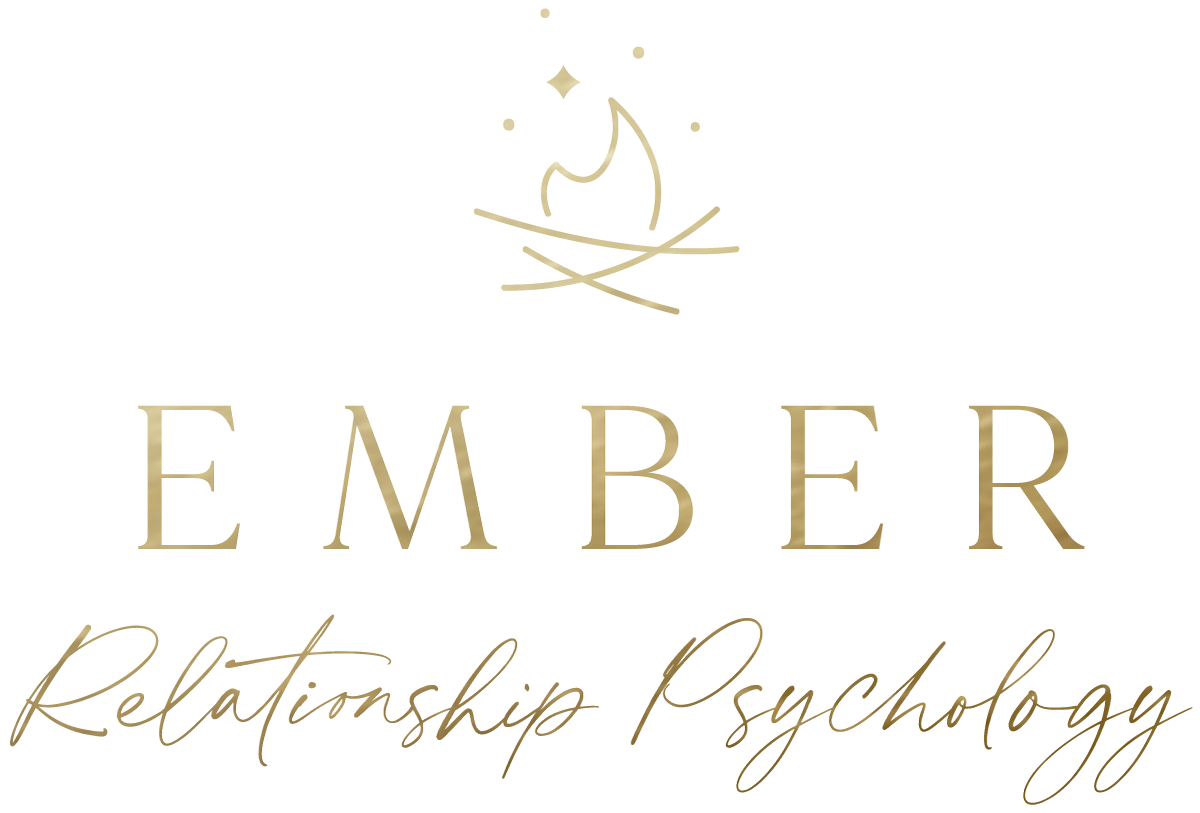4 Steps for Bringing Up a Sensitive Topic with Your Partner
by Amber Dalsin, M.Sc., C.Psych.
Keep Calm and Communicate On
Past pains can cause current sore spots, and not everyone reacts gracefully when faced with a sensitive subject. It’s important to think about how to engage your partner on these topics so you can share and connect without anyone getting hurt.
The number one predictor of divorce:
A harsh start up.
You know what your problem is!?
Wherever you go from there, odds are it won’t make your partner feel better. That’s a harsh start up.
This will happen even in great relationships from time to time, but when it is the dominant style in a relationship, this will cause problems.
If you want to help your partner talk about a sensitive topic, use a soft start up.
Soft start ups require us to be mindful
When we are activated by an old sore spot, our nervous system shifts into fight, flight, or freeze.
It’s important to be centered before the conversation and take breaks when you need them to prevent a fretful fight. When we are mindful, we can clearly communicate in a grounded and calming way, without things escalating.
Need some guidance with that? Download 50 Strategies to Calm Anger and Anxiety to help you generate a custom plan to gain control over how you react when you encounter a difficult topic.
4 steps for bringing up a sensitive topic with your partner
1. Be kind
2. Understand what’s in it for your partner to talk about this
3. Understand what is in it for you to talk about this
4. Know the result you want to achieve from the conversation
1. Kindness
Many people know their partners’ sore spots, and they say things like:
This is your abandonment issues.
That is a blameful, harsh start up and will probably end in a fight.
Remember to be gentle and kind. For example:
Babe, I love you. We have to talk about something that is hard and vulnerable for you.
The softer you are, the safer the conversation will feel.
2. What’s in it for them
We are more likely to have a conversation that will benefit us. So is this just for you? Or is it for them too?
Will it help bring you closer?
Will it help them feel more grounded?
Think of the end vision that your conversation would help them achieve. It is more helpful to talk about a solution than about what is wrong.
You don’t need to feel abandoned. I’m not your ex.
Does that feel kind and safe?
Babe, I love you. I want you to feel safe in our relationship always.
How does that feel?
When we understand what’s in it for our partner, we can craft our words to make conversations safer.
3. What’s in it for you
Many people automatically think about what they want stopped.
I want you to stop nagging!
I want you to stop smothering me!
I want you to stop distancing!
Now flip those statements into a positive. This is what’s really in it for you—the positive outcome.
I want us to both be accountable for what we say we are going to do and do it.
I want to have autonomy and freedom while in a loving relationship.
I want to have a connected relationship even in stressful times.
It is easier to hear dreams and positive needs rather than negative statements.
4. The result you want
Spell it out. Having a vulnerable conversation about sore spots can feel like reopening a wound. To make it feel like the wound is being stitched up, not made bigger, it’s important to talk about shared goals and shared ideas.
I want a stronger relationship with you.
I want us to both feel loved and be able to take space.
I want us to both have a relationship where we feel respected and valued.
The tough talk
Many couples make the mistake of forcing their partner into conversations full of harsh words, yelling, and emotional injury. The main points each person was trying to make are lost, and by the end of the conversation each person is hurt, and the relationship ends up worse off.
Soft start ups, being kind, knowing your goals and what’s in it for each of you, and talking about things in a positive way can help you bring up sensitive topics with your partner without triggering conflict.
Finding Support
Talking about delicate topics like old sore spots can sometimes be too much for a couple. It can be helpful to access support like couples therapy when you feel like an obstacle is too big to navigate alone.
This blog is not meant to be a substitute for couples therapy or relationship counselling. This should not be construed as specific advice. See a relationship therapist in your area to address your specific problems.


